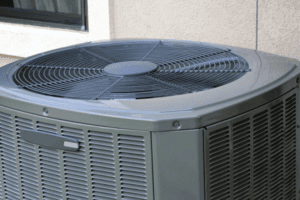Understanding a SEER Rating

What exactly is a SEER rating and why does it matter? Get the inside info here.
Buying a new air conditioner can be a daunting task, especially since there are so many factors in choosing the best one for your home. One of the most confusing elements of AC units is the SEER rating. One might see a marking such as 14 SEER or 16 SEER on an appliance, but not know what it means. Getting the full implications of this number will take some simple calculations and ultimately help you pick out the most cost-effective air conditioner.
What Is a SEER Rating?
The SEER, or Seasonal Energy Efficiency Ratio, is the cooling power used in a given cooling season divided by the electricity it took to generate it. HVAC professionals in the United States use British thermal units (BTUs) to measure cooling power. The less electric power it takes to produce the same amount of air conditioning, the better.
Calculating a SEER Rating
Going a few steps further in the calculations behind a SEER rating will tell you how much your cooling will cost on average every year and how much you can save compared to your current model or one with a lower SEER rating.
To find out the annual cost, divide the BTUs per hour by the SEER number to get the watts per hour. Next, multiply the watts per hour by the price of electricity per kilowatt-hour. This will give you the cost per hour. Determine how many days would be in one cooling season and how many hours you’d need the AC each day. Multiply to get the total hours, and multiply the total hours with the cost per hour, and there you will have an estimate of your annual AC bill. Go through the same process with a different SEER rating, and you will see how much you can save.
Choosing a SEER Rating for Your Home
SEER ratings can reach as high as 26 SEER, but is it worth it to go with the greatest efficiency? The annual price may be less than an appliance with a lower SEER number, but the upfront cost could be far heftier. At the end of the day, both appliances will deliver the same amount of cooling power to your home. The standard for Maryland residential areas is 14 SEER, but you may benefit from a higher rating, like 16 SEER. To get the best solution, contact Ground Loop!
HVAC SYSTEMS FROM GROUND LOOP
If you are concerned about high electricity bills in the winter, consider investing in geothermal heat pumps to help alleviate some of those costs. With many experienced technicians available, Ground Loop Heating & Air Conditioning, Inc. can solve all your air conditioning system problems. If you are interested in creating the most comfortable environment for your family to enjoy, contact Ground Loop Heating & Air Conditioning, Inc.today.
You can reach us at 410-836-1706, or visit our website for more information! If you are interested in more information about geothermal heating and cooling systems, check us out on Twitter, YouTube, Facebook, and LinkedIn.